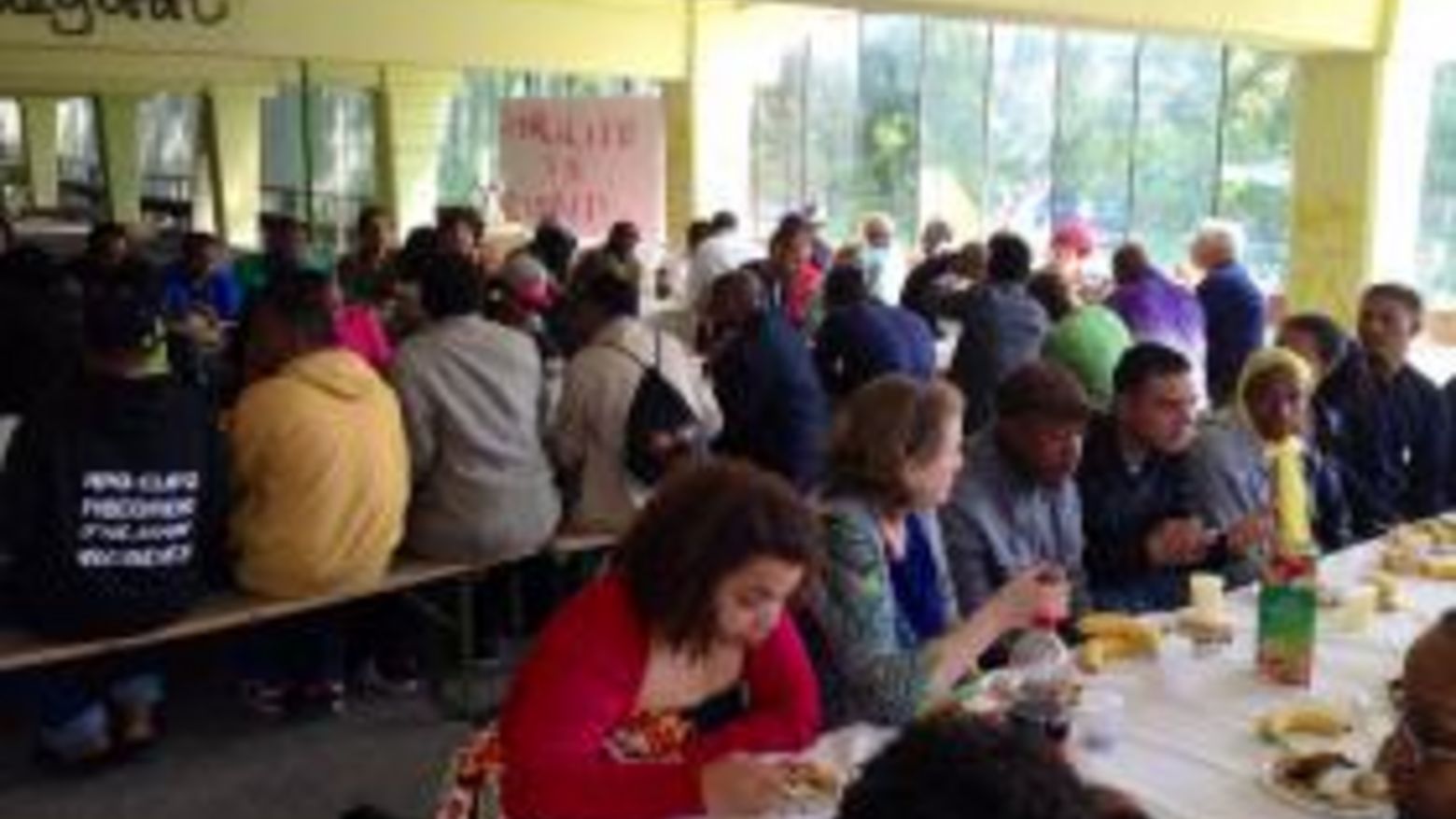WCC Press Release, 17.09.2014
Churches advocate for the rights of stateless people
To give visibility to the voices of stateless people in our society as well as to strategize together in how to support protection of their rights, a consultation was held by church organizations in Den Dolder, the Netherlands, in preparation of the UNHCR First Global Forum on Statelessness to be held from 15 to 17 September in The Hague.
The consultation organized by the World Council of Churches (WCC) and Kerk in Actie (Church in Action), from 12 to 14 September, came up with recommendations to be shared at the forum in The Hague. The document highlights how “stateless people are among the most vulnerable in the world and are exposed to degradation and inhumanity, in the form of human trafficking, exploitation, forced migration, arbitrary detention and deportation, as well as being compelled to live on the margins of society”.
It encourages the role of the churches in continuing to “reach out to and protect stateless people, providing them care and support, challenging the discrimination they face and thereby increasing the ability of the churches to respond to their needs”.
Some thirty representatives from churches, ecumenical organizations, academia, human rights and civil society groups, and UNHCR, including stateless people, were present at the consultation.
The need for an effective birth registration system as a means of preventing childhood statelessness was stressed at the event. The participants brought into focus the heightened risk of stateless people becoming victims of exploitative practices such as trafficking.
Ana Maria and Alfredo, stateless persons living in the Dominican Republic, spoke with the participants of the consultation via Skype. “We are living in a legal limbo, and don’t belong anywhere. In which century are we living? Are we moving backward?” said Alfredo. “With all the obstacles I face in my daily life, I feel I have a ‘suspended life’,” added Ana Maria.
“Statelessness is an avoidable shortcoming of our international system,” said Semegnish Asfaw Grosjean, the WCC’s programme executive for international affairs. “It is important to raise awareness and give visibility to the difficulties stateless people face for lacking a legal identity,” she added.
While discussing gender discrimination in nationality laws, Sophia Wirsching from Bread for the World, Germany, noted that an “increased global awareness on the importance of equal nationality rights for men and women and the consequences of discrimination” is needed.
Rev. Itefa Gobena Molte, ecumenical envoy of the All Africa Conference of Churches to the African Union, said that “it is important to encourage member churches in Africa to raise broad awareness within their communities regarding the need of birth registration”.
As part of the consultation, participants attended a prayer service at the Binnenwaai Church in Amsterdam on Sunday, followed by a fellowship lunch with 120 undocumented migrants, mainly from Africa. Some of the stateless people present at the gathering are living in the Vlucht, an abandoned garage. Expressions of solidarity were shared with the undocumented migrants while they shared their stories and experiences with the consultation participants.





